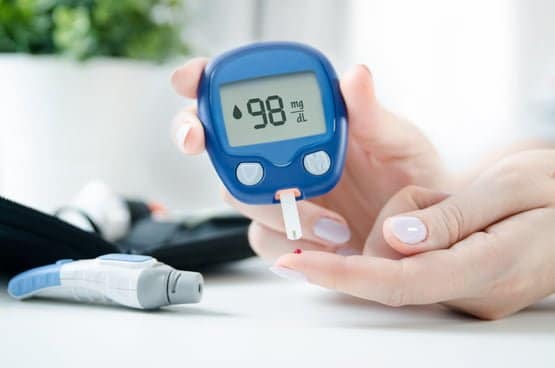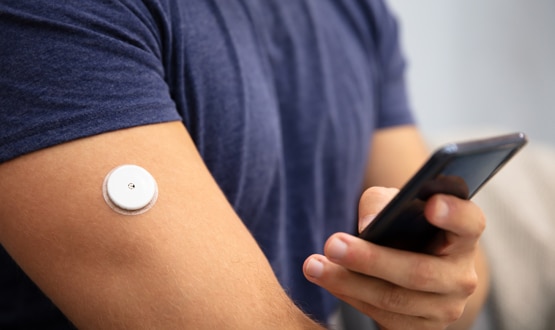Thousands to benefit from digital tools to tackle Type 2 diabetes

Thousands of people at risk of Type 2 diabetes will receive digital interventions after a successful pilot.
They will receive wearables that monitor their levels of exercise, access to health coaches and educational content, online peer support groups and the ability to set and monitor goals electronically.
In pilot schemes, offering convenient, 24/7 access to online advice significantly boosted the numbers taking up the flagship Diabetes Prevention Programme (DPP).
Some 68% of people referred to digital schemes took part, compared to half of those who received face-to-face support.
Up to a fifth of places on NHS England’s DPP – around 40,000 a year – will be offered via digital means.
People who are at risk of developing Type 2 diabetes but who cannot make face-to-face support sessions will be the first to benefit from the expansion, which starts this month.
Nikki Joule, policy manager at Diabetes UK, said: “This pilot has shown that a digital version of the NHS Diabetes Prevention Programme has the potential to encourage a wider range of people to participate.
“This could be vital in reaching more of the millions of people at risk of Type 2 diabetes, and in helping to reduce the increasing prevalence of the condition. The success of this pilot should lead to the NHS Diabetes Prevention Programme’s digital offering being rolled out more widely.”
The NHS Long Term Plan includes a focus on preventing conditions like Type 2 diabetes through the use of digital interventions.
The DPP, which has already helped thousands of people lose a combined 132,000 pounds, will be doubled so that 200,000 people every year can access it.
Jonathan Valabhji, NHS national clinical director for diabetes and obesity, said: “The Diabetes Prevention Programme has been a tremendous success for thousands of people already, and this new digital pilot further builds on that success.
“I’m delighted to see such a positive response among younger working age people, which shows how a digital approach can expand the reach of patients’ services as part of the NHS Long Term Plan.”
Dr Jennifer Smith, diabetes programme director at Public Health England, added: “The success of the pilot’s early findings shows we are breaking new ground to help those most at risk of Type 2 diabetes to literally take their health into their own hands at their own time and pace.
“Many of us use on-the-go digital technology every day and this is a fabulous next step in diabetes prevention.”
Simon Pickup, UK managing director at Liva Healthcare, a digital coaching platform available through the DPP, said digital solutions give responsibility back to patients, which eases growing pressure on healthcare services.
“Providing digital tools to enable patients to make – and maintain – these lifestyle interventions is a sustainable way to free up healthcare professionals’ time, whilst making sure that a patient is engaged at all times. Technology can help individuals at risk of chronic lifestyle diseases make long-term lifestyle change, it’s time we take full advantage of it,” he added.
The pilot, a partnership between NHS England, Public Health England and Diabetes UK, was launched in November last year, with more than 5,000 people test driving a range of apps, gadgets, wristbands and other innovative digital products from five companies.
[themify_box icon=”info” color=”gray”]
The trial found:
- Over two-thirds (68%) of those using digital support were aged under 65
- The average age of digital participants was 58, lower than the age of those using face-to-face interventions (64 years)
- 16% of digital registrations were aged between 18-44 years compared with 7% of the same age group who registered for face-to-face support
[/themify_box]




1 Comments
Do we have a link to the trial results so far?
I’m aware this trial covered different social economic groups (groups D+E, C1+C2, etc) and also different styles of digital intervention (coaching and non coaching).
Have these been measured against outcomes (possibly not as getting data to NHS was more difficult than it should be in this day and age).
Comments are closed.